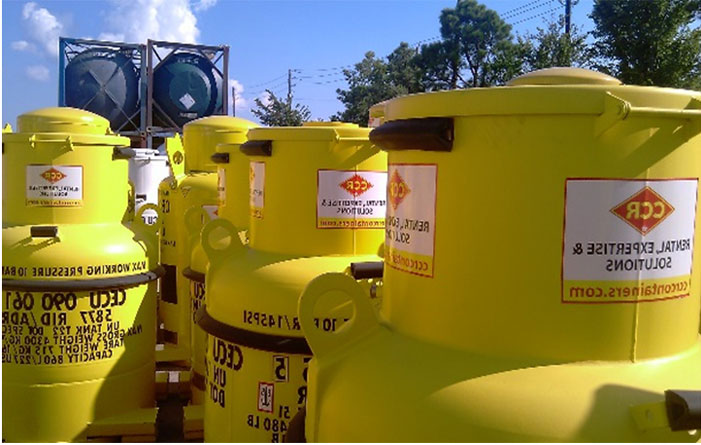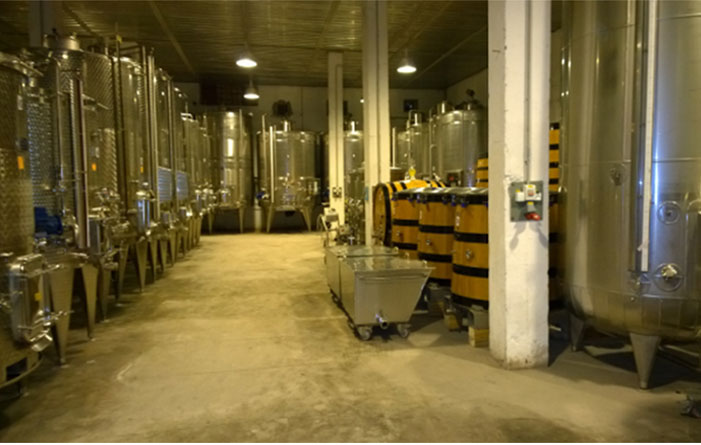The “Ten Keys to Success in Business” are shared through global examples, video and group discussions and by using the 20/20DC CHARM DANCE™ model. Course participants learn the traits of entrepreneurs and intrapreneur. Students are taught how to assess their own entrepreneurial skills. T-charts and SWOT analysis are explained and practiced evaluating products, companies, markets and personal strengths and weaknesses. Examples and scenarios focus on international trade and how to identify a product niche that capitalizes upon the comparative and competitive advantages.

Course participants develop skills in assessing a company’s readiness to export including organizational structure, staffing needs and training, and product selection. The need for company profiles and product profile sheets is discussed. Market research techniques are demonstrated to introduce available on-line resources and to show how to refine the product choice to identify a profitable niche in the right market considering the global competitors and company resources. International standards, alternate customer/sales relationships and risk analysis and mitigation are introduced. Packaging alternatives based on the product niche are explored and consumer packaging concepts are reviewed using the 20/20DC “WISDOM”™ model. Finally, the steps in executing sales and shipping documentation are presented.

Companies with some export experience will explore how to refine sales partner selection and business models to build lasting and repeatable sales. Advanced pricing strategies are introduced along with payment options, risk mitigation, and the basics of intellectual property laws. INCO terms are reviewed as a way to increase buyer confidence without undue risk. The role of international competition and commodity pricing drivers are explained and modeled to help identify trends to watch to uncover new sales opportunities. The role of third partycertification for Fair Trade and Organic products is presented along with what value that can bring to a product and how to gain the needed approvals and documentation.
Exhibiting at a trade show is expensive and time consuming and can be a waste of resources unless it is well planned and executed. We begin this course by exploring how to research a trade show to select the right show for your product. When should you visit a show and when should you exhibit at it? How do you identify potential trading partners to meet with during the show? We provide checklists for pre-show planning covering what to take to set up the booth space to how to make appointments with potential partners, along with follow-up techniques to make the most effective use of samples and literature to turn contacts into leads and leads into sales. Participants will evaluate when a Sellers Mission or a Buyer’s Mission may be better options than a trade show and how to prepare for and participate in this type of event.
A comprehensive course for company owners and leaders of current and potential exporters and for development or government agency staff working with exporters and potential exporters. The curriculum covers key concepts in entrepreneurship and business growth through exporting. Company readiness assessment, product selection and customization, and market selection are explored through worksheets, small group discussion, online research tools, and case studies. The mechanics of executing a transaction are explained, from INCO terms to Bills of Lading and from product inspections to payment terms. Packaging, cultural differences, and presenting the company and product visually and at trade shows are explained through real world examples.

Corporate and government agency trainers and advisors need the latest in presentation skills to effectively and efficiently transfer knowledge to participants in their workshops and seminars. Using the latest in adult learner techniques, participants will discover how to improve learning and increase audience satisfaction through better site selection, room layout, verbal and non-verbal presentation skills, and the effective use of visual aids and examples. This is an interactive course where techniques are modeled and discussed, then practiced in small groups. One on one feedback is provided to polish speaking skills and practice new approaches. Our presenters have trained award winning speakers at the high school and university level and coached corporate executives in both dynamic formal speeches and engaging small group presentations.
Understanding that in many developing countries the youth (18 – 35 years) are critical to the family income derived from agriculture the 20/20LI team applies the principles utilized in the USA to advance youth in agriculture through our vast experience with Future Farmers of America (FFA), 4H and vocational agriculture programs at the High School level we have developed a number of programs that support youth in agriculture from leadership programs to production education and competition driven improvements in agriculture. These courses are designed by past and present leadership in the FFA programs.
Quality and value may sell the product the second time, but packaging helps sell it the first time. This course reviews the purpose of packaging and considers alternative packaging materials for different sales channels or brand positioning. Various materials and structures are compared with the competing forces of consumer expectations, customer needs, design limitations, transportation and costs being considered. “Green Packaging Initiatives”, certifications and international standards are discussed and country specific packaging is reviewed. Consumer packaging from around the world is used to demonstrate the basics of branding and design while pointing out why local custom, culture and language must be considered in package design.
This is an interactive course that uses role playing to give hands on practice with the documents used in exporting. By comparing the documents that they receive from a “buyer” or a “seller” with the information that is required to complete each step in the paperwork process, participants learn how the various types of documentation tie together to ensure that the entire transaction is seamless and that the expectations of all parties are met. Examples include: Bills of Lading, INCO terms, Proforma Invoices, Letters of Credit, Wire Transfers, Insurance, Tariff Codes, and Phytosanitary Certificates.

A seminarto encourage a new way of looking at your business and to allow high level discussions between participants about the nature of global business through five case studies. Participants will explore how a niche market was created for wines from the Republic of Georgia, and how blueberry jam was successfully produced in yurts in Mongolia that met the stringent Japanese Agricultural Standards. The globalization of retail and how a leading brand in Asia expanded into the USA will be reviewed in the case of Ron Sim and his company OSIM International Limited. The British company, Supreme Petfoods Ltd., is the model for creating a niche within a commodity category by observing adjacent categories. The case for supply chain partnering and direct foreign investment is presented through the story of a Chinese textile company and it USAcustomer that imported dog beds.
The pricing strategy for commodities and for niche products is very different. Real world examples from 20/20DC’s own experience will be used to explain how they differ. Participants will learn how to forecast the cash flow and working capital demands of exporting and how to compare alternative payment terms for its customers and from its vendors to decide if a sale is “good” or “bad” for the business. The class will look at global production data and logistics costs to model the affect different drivers have on the price of a product. Alternative models- bottom up, top down, fully loaded and incremental costing will be explored to determine the “right” price for a product. Examples of product lifecycle pricing will be studied and industry “supply and demand” constraints driven pricing will be presented.

Brand names, logos, formulas and patents all have value. Protecting those assets not only increases the price you can charge for a product and the value of your company, it can protect your ability to sell your product in a given country or region. Failure to protect your intellectual property may mean another company owns or has the rights to “your” name or product. This overview of international intellectual property laws outlines which assets can be protected, how to put protection in place, and how to evaluate if the effective safeguard is worth the cost.
By using a role playing scenario, participants will practice looking at a manufacturing or processing facility and drawing up action plans to implement a Hazard Analysis and Critical Control Points program for health and safety. The course is guided by an expert who has led companies around the globe in successfully implementing programs in small village outbuildings and world class factories. Step by step instruction guides the process of hazard analysis, identification of critical control points, establishment of critical limits and monitoring requirements, creation of corrective actions, documentation procedures and verification of the entire process.

What food safety standards, guidelines and programs help to ensure safety, quality, and fairness in international food trade? What programs are required in order to export your product? Which aren’t required but increase buyer confidence, reduce your risk and make it more likely that the buyer will pay top price for your goods? This course answers these questions by explaining howvarious programs and standards are connected to one another. Discussions will include Codex Alimentarius, ISO 22000, HACCP, GAP and product traceability.
What testing, certifications or inspections are required for exporting agricultural products? How do the requirements vary from country to country and which certifications are interchangeable? Participants in this course will sort through the myriad of certifications to identify which apply all agricultural products and which are necessary only for niche or value added products. Company administered prerequisite programs will be separated from those requiring an outside agency to administer them. Third party testing and verification firms will be identified and their roles outlined.
Many certification programs require traceability and documentation from the farm, through intermediary handlers, to the processor and throughout the trade chain. Participants in this course will develop an understanding of Good Agricultural Practices (GAP), and Fair Trade and Organic certifications. They will be able to identify the most widely recognized third party certification firms and explain the role of a third party in ensuring transparency in meeting the buyer’s expectations.
There are hundreds of standard certification options for companies ranging from Organic and Fairtrade to International Standards Organization (ISO), GMP, GlobalGap to country and regional specific standards including JAS (Japanese Agricultural Standards), The European Organization for Quality (EOQ) and TÜV. This course is designed to help the students understand the different standards and help them identify which standard their company should follow and produce to in order to capture their greatest returns on targeted markets.

This course combines several of the other 2020 Learning Institute courses together to present a full overview and training on all aspects of export trading and marketing. Utilizing 20/20DC experts from around the world with a wide array of expertise this course is designed for the export professional. This course is designed for in-house export expertise as well as outside service providers including customs brokers, NVOCC operators, logistics companies, freight insurance providers, government officials supporting export and bankers.
In today’s global economy there are dozens of options on delivering your product to your company. This course covers issues including; bulk shipments, break-bulk, Full Container Load (FCL), Less than Container Load (LCL), to Direct to Consumer shipments through package couriers. This course also touches upon regulations for chemicals and other products where international logistics is controlled by United Nations Standards or National or Trade Agreement standards.
20/20DC team members have a wide range of expertise in both products and markets. Our experts have disciplines including:

With this range of expertise the 20/20DC team can tailor a course to meet our client’s specific needs. In all cases the 20/20DC works with our clients to modify the courses to include local examples and to put the course into a local perspective.